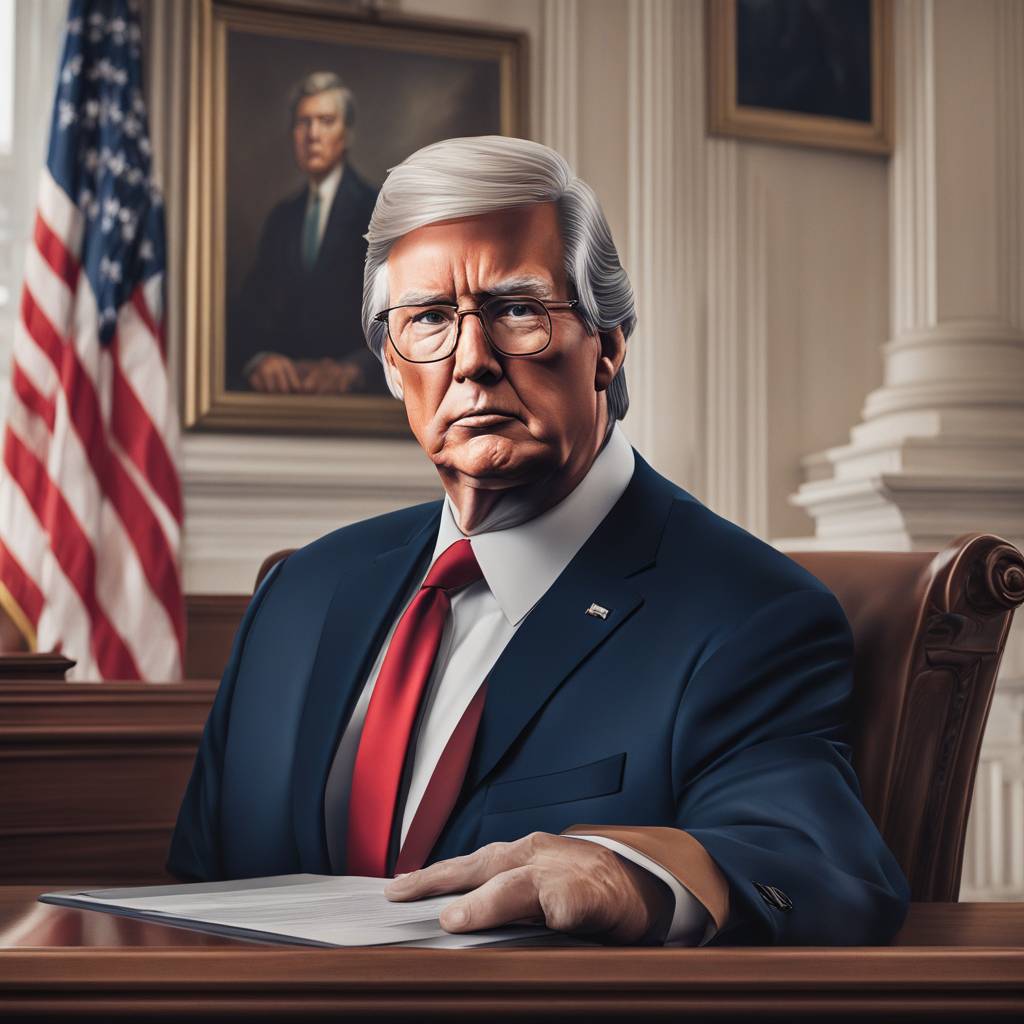Former White House lawyer Ty Cobb, along with a group of 13 other former prosecutors, constitutional lawyers, and elected officials, signed a Supreme Court brief in support of Special Counsel Jack Smith against former President Donald Trump’s argument of presidential immunity. The brief argues that the Constitution does not grant former presidents immunity from criminal prosecution, and even if there were limited immunity for certain official acts, it would not apply to the acts alleged in Trump’s case. The Supreme Court will hear oral arguments on the matter on April 25 as part of Trump’s attempt to dismiss Smith’s 2020 election obstruction case against him.
The preparation of the brief was led by former U.S. Solicitor General Seth Waxman, with conservative anti-Trump lawyer George Conway also signing as a “friend of the court.” The brief argues that Trump’s immunity claims go against the Constitution and the principle that no person is above the law. It calls on the Supreme Court to affirm the decision of the Court of Appeals for the D.C. Circuit, which upheld the ruling by Judge Tanya Chutkan overseeing the federal trial into Trump’s alleged criminal attempts to overturn the 2020 election results and the events leading up to the January 6, 2021, riot at the U.S. Capitol.
Trump has faced 91 felony charges across four criminal cases, to which he has pleaded not guilty, claiming they are politically motivated “witch hunts” aimed at hindering his chances of winning the 2024 election. The federal trial into Trump’s alleged criminal attempt to overturn the election results and the events leading to the Capitol riot may be further delayed pending the Supreme Court’s ruling on the immunity argument. Legal experts believe the Supreme Court will likely reject Trump’s argument that he can claim absolute immunity for conduct committed in the White House, even though he is no longer in office.
In addition to Ty Cobb, the amicus brief was signed by other prominent figures such as Patrick J. Fitzgerald, Bill Kristol, and Fred Wertheimer. The brief argues that the Supreme Court should issue its opinion soon after the oral arguments on April 25 to avoid delaying the trial and ensure the public knows Trump’s legal standing before making any decisions related to the 2024 election. The brief challenges Trump’s claims of immunity and asserts that no person, including former presidents, should be above the law, calling for the Supreme Court to uphold the lower court’s decision in this case.
The case has garnered significant attention and is seen as a significant test of the rule of law and the limits of presidential immunity. If the Supreme Court decides in favor of Trump, it could set a concerning precedent for future presidents and undermine the principle that all individuals, regardless of their position, should be held accountable for their actions. The outcome of this case will have far-reaching implications for the legal framework surrounding presidential immunity and the ability to hold former presidents accountable for alleged criminal actions committed during their time in office.








